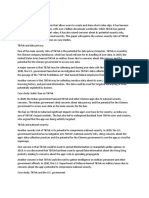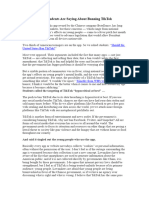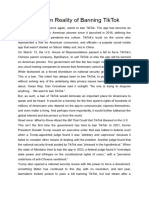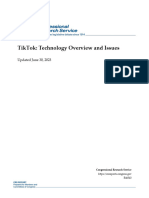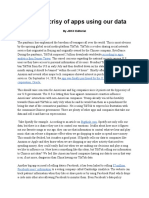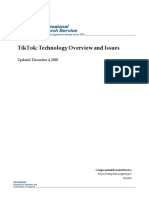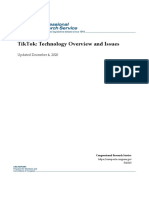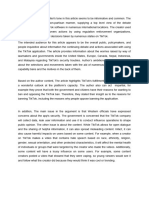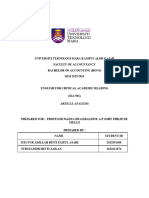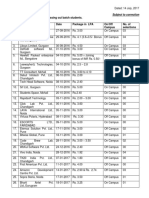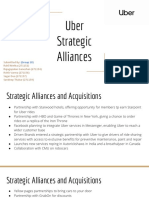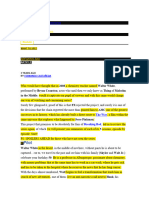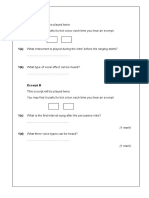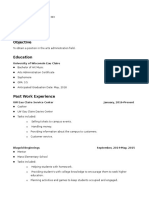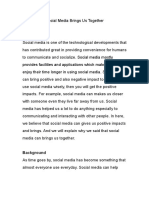0% found this document useful (0 votes)
14 views3 pagesPosition Paper
The document discusses the debate over a potential TikTok ban in the U.S., arguing that such a prohibition would infringe on First Amendment rights and fail to effectively address national security concerns. It highlights TikTok's role in fostering free expression, community engagement, and economic opportunities for users. Instead of a ban, the paper advocates for comprehensive data protection laws that ensure user privacy while safeguarding free speech.
Uploaded by
acerebusquilloCopyright
© © All Rights Reserved
We take content rights seriously. If you suspect this is your content, claim it here.
Available Formats
Download as DOCX, PDF, TXT or read online on Scribd
0% found this document useful (0 votes)
14 views3 pagesPosition Paper
The document discusses the debate over a potential TikTok ban in the U.S., arguing that such a prohibition would infringe on First Amendment rights and fail to effectively address national security concerns. It highlights TikTok's role in fostering free expression, community engagement, and economic opportunities for users. Instead of a ban, the paper advocates for comprehensive data protection laws that ensure user privacy while safeguarding free speech.
Uploaded by
acerebusquilloCopyright
© © All Rights Reserved
We take content rights seriously. If you suspect this is your content, claim it here.
Available Formats
Download as DOCX, PDF, TXT or read online on Scribd
/ 3












